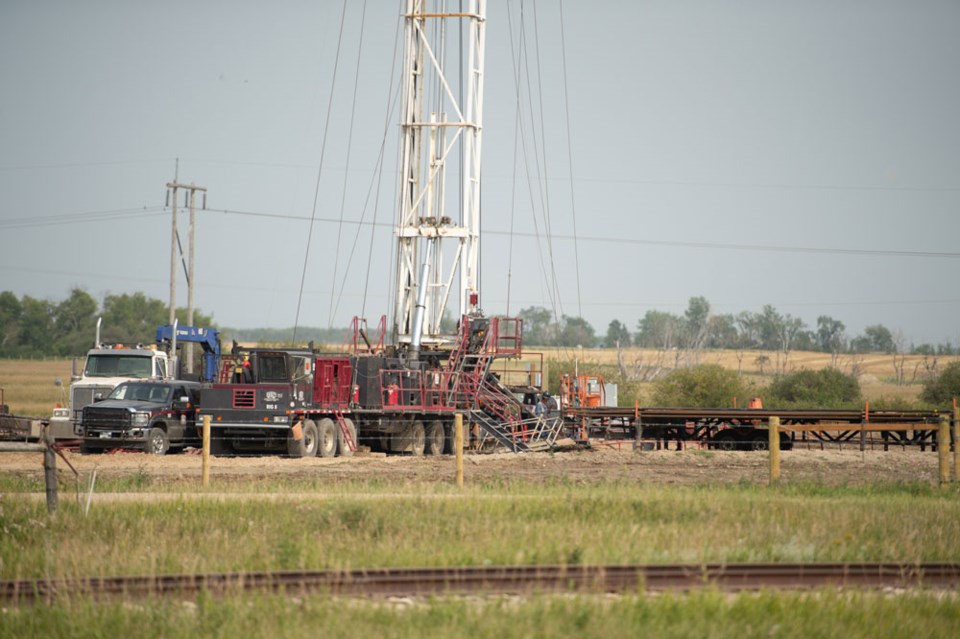In advance of the coming fall election in Saskatchewan, the Canadian Association of Petroleum Producers (CAPP) has released its suggested energy policies, to both the Saskatchewan Party and the New Democratic Party, for consideration.
CAPP principally represents the largest oil producers in the country, but there are also some smaller members. Member companies with significant operations in Saskatchewan include Crescent Point Energy Corp., Vermillion Energy Inc., NAL Resources Limited, Husky Energy, Canadian Natural Resources Limited, PrairieSky Royalty and Questerre Energy. CAPP’s president and CEO is Tim McMillan, former Saskatchewan Minister Responsible for Energy and Resources before taking his current job. Â
The report outlines a vision to make Saskatchewan one of the most attractive jurisdictions for oil and natural gas investment, according to CAPP. Goals include increasing the province’s resource income, creating jobs and attracting investment.
“Saskatchewan’s oil and natural gas industry has the capacity to create high-paying direct jobs and our sector supports growth in local indirect jobs such as hotels, restaurants, retail and other services. Governments must continue to prioritize growth, and a competitive and effective policy and regulatory environment that encourages investment in, and the development of, Saskatchewan’s resources, while ensuring resources are produced in an environmentally responsible and sustainable manner. With the right policy conditions, our sector can substantially contribute to Saskatchewan’s recovery and achieve shared objectives of creating jobs, generating benefits, advancing environmental leadership, and building wealth while shrinking Saskatchewan’s debt.”
This vision will require action on fiscal and economic policy to enable industry to recover and grow, CAPP said, and to ensure a competitive environment in the province in order to attract investment.
CAPP suggested four areas the province could address to become more attractive for oil and gas development. The first is fiscal and economic policy. CAPP says Saskatchewan should maintain the vision to have a competitive royalty regime and ensure Saskatchewan has a globally competitive and efficient royalty framework. It also says this province should “design elements to achieve increased investment, to grow economic benefits to the province, encourage innovation, and to support Saskatchewan in achieving its goals such as creating new jobs and growing private capital investment.”
A “balanced and fair” municipal tax policy is another key concern. CAPP said Saskatchewan should “Drive operational efficiencies leading to cost reductions for both municipalities and industry. For example, industry supports the plan to create a single-window application for municipalities’ permitting and invoicing activities.”
CAPP also said the province should “Require rural municipalities to be transparent, and to be accountable for providing regularly updated financial reports that are easily available to the public.”
For electricity, CAPP wants SaskPower’s rate structure to be based on the lowest possible source of supply in future capital expenditures.
Notable in its absence was any suggestion of expanded use of carbon capture and storage. Twenty years ago, the Weyburn Unit began injecting carbon dioxide for enhanced oil recovery. But they did suggest the province “Consider return on equity and all other returns required to government and its impact on rates and customer costs.”
CAPP would also like Saskatchewan to “remove red tape and implement opportunities for SaskPower to facilitate industry’s emission reductions through gas-to-power initiatives and other self-generation projects.”
Finally, CAPP said Saskatchewan should lead regulatory efficiency. This includes prioritizing ongoing reviews of regulatory challenges and red tape to create efficiencies and implementing a consistent consultation policy framework. Saskatchewan should also set and achieve targets for application timelines superior to competing jurisdictions.
CAPP would like to see “one application, one review, one decision process for all applications.”
It also said the government should “assert Saskatchewan’s constitutional authority over oil and natural gas sector approvals and regulation for all projects within its jurisdiction.”
The document concluded by saying “Supporting pipeline projects that will increase market access for oil and natural gas products continues to be important in order to reach growing markets, leverage export potential and to ensure Saskatchewan is in a position to help supply global energy demand.”




